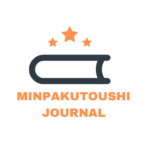When I first stumbled upon holistic financial planning, it completely shifted my perspective on managing money. Instead of just crunching numbers and focusing on investments, this approach considers every aspect of my financial life, from goals and values to lifestyle choices. It’s about creating a comprehensive strategy that aligns with my unique circumstances.
Holistic financial planning isn’t just about building wealth; it’s about achieving financial well-being. By integrating various elements like budgeting, retirement planning, and risk management, I’ve found that I can make more informed decisions. This method empowers me to visualize my financial future and take actionable steps toward my goals while ensuring I’m prepared for any unexpected challenges along the way.
Key Takeaways
- Holistic Perspective: Holistic financial planning takes into account all aspects of your financial life, integrating goals, values, and lifestyle choices to create a comprehensive strategy for financial well-being.
- Comprehensive Strategy: This approach includes budgeting, retirement planning, risk management, and investment strategies, allowing for informed decision-making aligned with personal aspirations.
- Key Components: Critical elements such as financial goals, risk management, investment strategies, tax planning, and estate planning collectively contribute to a robust financial plan.
- Benefits: Holistic financial planning enhances financial health, improves decision-making, and secures long-term financial stability by ensuring all components work together effectively.
- Challenges: Effective implementation may face obstacles, including identifying all financial aspects, coordinating among various financial services, and maintaining flexibility to adapt to life changes.
- Empowerment and Clarity: Engaging in this planning method empowers you with clarity about your financial situation, fostering confidence and reducing stress associated with uncertain financial decisions.
What is Holistic Financial Planning
Holistic financial planning considers all dimensions of financial life, providing a comprehensive strategy for achieving financial well-being. This method integrates various financial aspects to align them with personal goals and values.
Definition of Holistic Financial Planning
Holistic financial planning means analyzing and addressing financial goals in conjunction with individual circumstances. This approach evaluates income, savings, investments, taxes, and estate planning while considering personal aspirations and lifestyle choices. By viewing finances as interconnected, I can create a detailed financial plan that adapts to changing needs and situations.
Importance of a Holistic Approach
A holistic approach to financial planning enhances decision-making by offering a complete view of one’s financial landscape. This method prioritizes aligning financial strategies with life goals, improving both satisfaction and confidence in financial decisions. Additionally, it fosters proactive planning for future events, ensuring I’m prepared for life’s unexpected challenges. By incorporating budgeting, risk management, and retirement strategies, I achieve a balance between current needs and long-term objectives, promoting overall financial health.
Key Components of Holistic Financial Planning

Holistic financial planning incorporates multiple elements that work together to achieve financial well-being. Understanding each component allows for more informed decision-making that aligns with personal values and long-term objectives.
Financial Goals and Objectives
Identifying clear financial goals and objectives lays the foundation for effective holistic financial planning. I define short-term and long-term aspirations, such as saving for a home, funding education, or retirement. By prioritizing these goals, I can create actionable plans that align my financial decisions with my life aspirations.
Risk Management
Risk management identifies potential financial threats and addresses them proactively. I assess various risks, including market volatility, health-related expenses, and unforeseen events. By incorporating insurance products and emergency funds, I ensure that I’m prepared for life’s uncertainties, protecting my financial stability while pursuing growth.
Investment Strategies
Investment strategies form a critical component of my holistic financial plan. I evaluate various asset classes, including stocks, bonds, and real estate, to build a diversified portfolio. Tailoring my investment approach based on my risk tolerance and time horizon aids in maximizing returns while aligning them with my financial goals.
Tax Planning
Tax planning plays a vital role in holistic financial management. I analyze my financial situation to minimize tax liabilities while maximizing deductions and credits. Strategies like tax-deferred accounts and capital gains management enhance my ability to retain more income long-term, ultimately boosting my wealth accumulation.
Estate Planning
Estate planning ensures my assets are distributed according to my wishes after my lifetime. I establish wills and trusts that outline asset distribution, guardianship for dependents, and decisions regarding healthcare. This comprehensive approach protects my family and supports my financial legacy, allowing for a smooth transition of assets.
Benefits of Holistic Financial Planning

Holistic financial planning offers numerous advantages that enhance both my financial well-being and overall life satisfaction. By considering all aspects of my financial landscape, I can achieve a more balanced and secure financial future.
Comprehensive Financial Health
Holistic financial planning encompasses all elements of my financial life, including income, savings, investments, and expenses. This comprehensive approach enables me to identify and address gaps in my financial strategy. I can ensure that each component works together effectively, resulting in improved financial health. By evaluating various aspects like insurance needs and emergency funds, I strengthen my overall stability and resilience against unexpected events.
Improved Decision Making
Holistic financial planning empowers me with the clarity and knowledge necessary for informed decision-making. With a complete understanding of my financial situation, aligning goals and priorities becomes straightforward. I can weigh options confidently, whether selecting investments or determining appropriate savings levels. This clarity boosts my satisfaction with my financial choices and reduces stress associated with uncertainty.
Long-Term Financial Security
By engaging in holistic financial planning, I position myself for long-term security. Comprehensive strategies focus not just on immediate gains but also on sustainability over time. Developing a diversified investment portfolio tailored to my risk tolerance ensures that I can weather market fluctuations. Additionally, incorporating tax optimization strategies safeguards my wealth against erosion, leading to a stronger financial legacy for my family.
Challenges in Implementing Holistic Financial Planning

Holistic financial planning presents obstacles that can hinder its effective implementation. Understanding these challenges clarifies the approach and informs strategies to navigate them.
Identifying All Financial Aspects
Identifying all financial aspects remains crucial yet complex. It requires a comprehensive assessment of income, expenses, debts, and assets, which often involves a deep dive into personal financial records. I must consider various components such as savings accounts, investment portfolios, liabilities, and insurance policies. Overlooking any aspect can lead to incomplete planning, which might undermine long-term goals. Engaging with financial tools or hiring a professional can streamline this process, ensuring a thorough evaluation.
Coordination Among Services
Coordination among services poses another significant challenge. Holistic financial planning demands collaboration across different financial disciplines, including investments, insurance, taxes, and estate planning. I often find that professionals from various sectors may not communicate effectively with each other, leading to fragmented advice and potential conflicts in strategy. Establishing a cohesive team that shares information openly can enhance this coordination, enabling aligned recommendations that support my overall financial objectives.
Maintaining Flexibility
Maintaining flexibility is essential but challenging in holistic financial planning. Life circumstances can change rapidly—job loss, medical emergencies, or unexpected expenses can disrupt financial plans. It’s critical that my financial strategy incorporates contingency plans and adaptable elements to respond to these changes. Regular reviews of my financial situation and goals enable me to make timely adjustments, ensuring resilience against unforeseen events while still working towards long-term aspirations.

